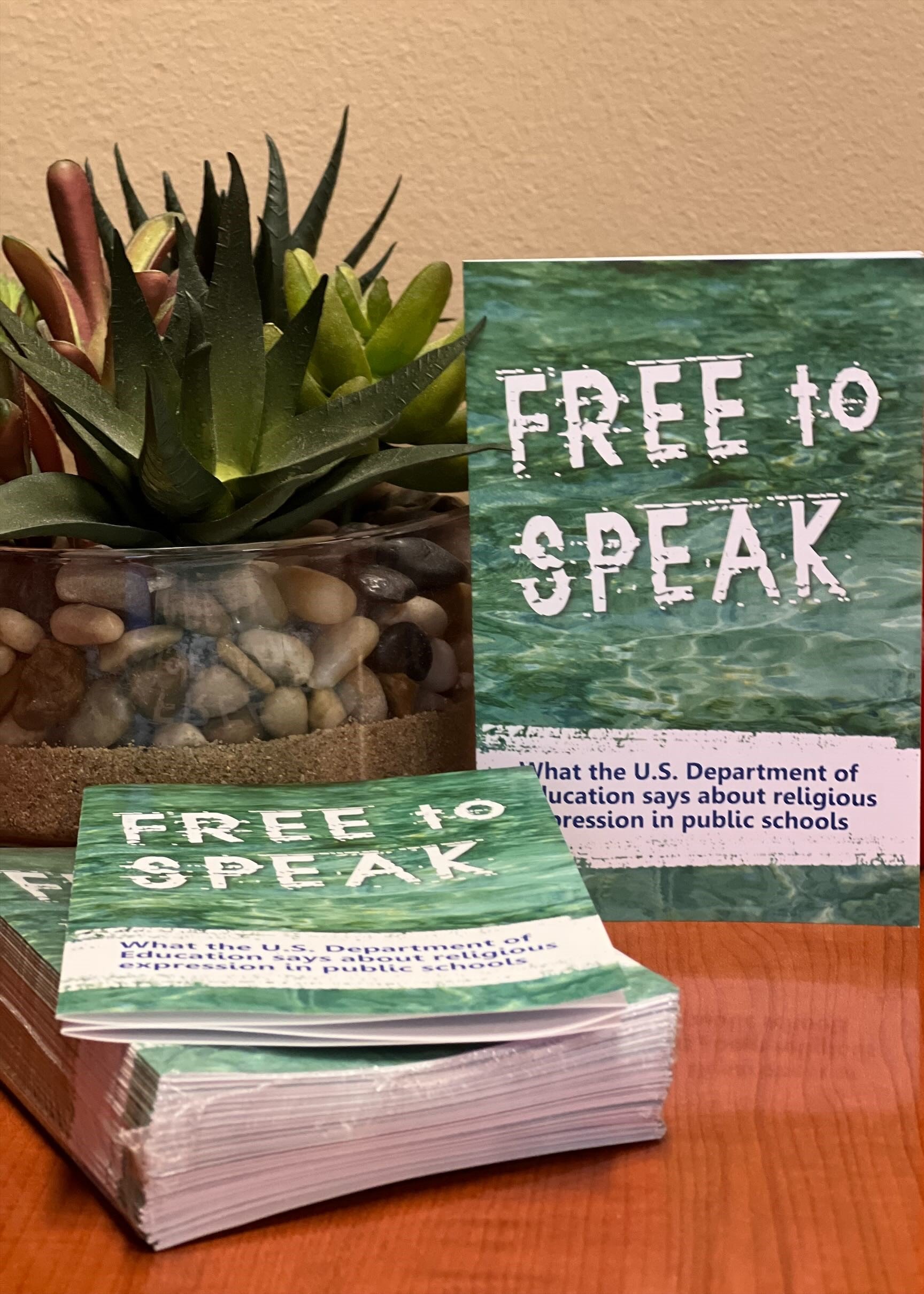How to Talk to a Teacher or Administrator When You are Concerned About a Classroom Activity or Assignment
Technique #1: "Help Me Understand"
When you first hear of a classroom assignment or activity that concerns you, verify your information with the teacher. Don’t jump to conclusions. However, before meeting with the teacher you can think through why—if what you heard was accurate—you would like the teacher to change the activity or assignment. Then, use the following four-step approach to discuss the issue with the teacher.
Start the conversation by using the phrase “Help me understand...” For example, if you are concerned about a particular reading assignment, you might start by saying, “Help me understand why you chose this book for the students to read.” At this point in the conversation you want clarification. You may assume the teacher has one motive, but after discussing it you may discover your assumption was wrong. Your question should be a sincere desire to understand the point of the assignment
Affirm what the teacher is trying to do in general. There is bound to be something on which you can agree. For example, you might appreciate that the teacher wants the students to learn about the environment, but you are concerned about the particular bias of the book she is using. At this point in the conversation, don’t jump to explaining your concerns. Finding “common ground” is an important part of the discussion.
Transition to your concern by using the phrase, “But have you considered....” Don’t assume the teacher will oppose you. In fact, it is better to assume the teacher will agree with you once you explain your concern. Having that assumption will help you avoid expressing an adversarial tone.
If the teacher agrees with you, ask her advice about what might be a good alternative book, assignment, or activity for the class.
If the teacher doesn’t agree to change what the class will be learning, you may want to ask for an alternative assignment for your own child.
Technique #2: "Your Class, My Child"
There may be times when you want to ask your child to be excused from an assignment or activity. Here are four steps you can take in an attempt to bring about a mutually satisfactory result.
When you meet with the teacher, begin with a compliment rather than a complaint. Find something you appreciate about her teaching.
As you transition to your concern, be sure to acknowledge—with genuine respect—her authority to teach her subject as she sees fit. This will circumvent the natural defensiveness any teacher is bound to feel when confronted by a disapproving parent.
Follow this with a friendly reminder that though the classroom is hers, you are ultimately responsible for your child’s development. Long after he has graduated from this class you will still be responsible for his academic and moral growth.
Conclude by asking—without challenging the teacher’s right to teach—for her to provide an alternative educational activity for your child. It is best not to have the teacher simply put your child in the hall. Instead, ask that he be allowed to work quietly at his desk on another assignment or go to the library. If you discuss this in a friendly manner, most teachers will honor your request.
Sometimes talking to the teacher doesn’t solve the problem. You should always start with the teacher, but if you are not satisfied with the teacher’s response, you may want to visit the school principal.
Technique #3: "I Thought I Should Alert You to a Potentially Embarrassing Situation" (How to talk to a principal or administrator)
Principals are used to hearing the complaints of parents. Avoid sounding like a complainer. Instead, you can approach the principal as a friend and supporter of the school. Assume the principal will welcome your input because it may save her from an embarrassing situation or an unnecessary problem. School administrators don’t want problems. Your input may help her avoid a problem later.
One way to begin the conversation is with the sentence, “I thought I should alert you to a potentially embarrassing problem.” You are not there to cause a problem, but to help the school avoid a problem. It is quite possible the principal is unaware of what is happening in the classroom. For example, what if other parents discovered their children were listening to a guest speaker whose remarks were inappropriate? You will have the principal’s attention if you begin your conversation with the sentence, “I thought I should alert you to a potentially embarrassing problem.”
Explain what you discovered when you talked to the teacher and share your concerns with the principal.
Ask the principal’s advice for how to resolve the problem. If she offers to help by talking to the teacher about the situation, ask when it will be done. Let her know you will call to find out the result of the conversation between the principal and the teacher.
You may also want to bring a friend or your spouse along. You will feel less intimidated, and if you get flustered, your partner can help you express your concern. If you cannot resolve the issue through the principal and you feel strongly about it, you may need to seek counsel from the superintendent. Keep asking, “Who else can help us with this issue?”
(This article is excerpted from Gateways's ten-topic parenting Bible study, Keeping the Faith in Public Schools: How to help your children graduate with their faith and values intact.









